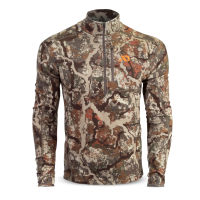
I readily admit the bulk of my deer season work is done during the season. I’m a big believer in the “most recent information” approach and take it to extremes. This is why I don’t spend a ton of time on postseason scouting efforts.
But naturally, there's still some work to be done between now and next season. Here are three off-season chores every hunter should make a priority right now.
Cameras and Gear I can't tolerate wasted time. Unless you have somehow managed to slow down the passing of hours in a day, you likely never have as much time to hunt as you’d like. I know I don’t.
The hours I have available each fall are limited. Of those available hours, precious few come during a productive time that might lead to success. I can’t afford to waste any of them. Digging around in a vehicle for a needed piece of gear is a waste of time. Searching frantically for a lost item is a waste of time. Dealing with a trail camera that’s stopped working in early November is a waste of time. Waiting on a new bow string to arrive in October is a waste of time.
Over the past few years, I’ve adopted a minimalistic approach to deer hunting (and life in general, for that matter). The premise is basic: The less crap I have to worry about, the less time I’ll waste on it. But even with a minimum amount of gear, time can still be wasted if that stuff isn’t organized, maintained, and prepped. And there's no reason to do any of that once deer season begins. It should be done now.
I make sure to remove the batteries from my trailcams, give the units a good cleaning and store them in a dry location. When it’s time to hunt again, I know exactly where all the cameras are and that I won’t open the battery door to find leaking and corroded batteries.
Now is also the time for bow maintenance. I inspect and replace strings and cables and address any other issues. I keep everything I use to hunt deer in a pack that lives in the same place year-round when not in use. The same goes for hunting clothes. I have a single tote that all my gear fits in so nothing is lost or misplaced. Everything is ready to go the moment I need it.
Stands, Sticks, and Saddles Let me start with this: If you are the type (and I shamefully admit I used to be) who leaves your stands in the woods all year, you are asking for trouble of a serious variety.
Sunlight breaks down all kinds of materials, including those synthetic fibers that wrap around the tree to keep your stands, sticks, and saddle gear in place. Get it all out of the woods and store it properly.
Every winter, I inspect every stand and climbing stick that I use. I’ll replace bolts and cables as needed, deal with rust spots, and replace straps. I give all ropes, carabiners, and attachment points a once-over and take care of any issues.
I then organize everything as if I were about to pack up and head to the woods. Again, the point here is to save time when it matters most and to have everything maintained for safety, stored in a place that requires no searching, and is ready to go.
Budgeting Deer hunting is not a cheap passion. I’m sure that’s no revelation to most of you. If you intend to hunt more than one state, tag costs can add up in a hurry. Fuel costs continue to climb. You also must account for food and a place to stay.
For some, these expenses are nothing more than a mild annoyance. For others, including me, they absolutely must be planned for. Not only do you get the best bang for your dollar if you plan now, but it’s also good practice and avoids unnecessary spending.
Right now, I’m in the midst of setting my 2022 hunting budget and making plans for how to fund that budget. I factor in everything: Tags, fuel, food, lodging options, vehicle maintenance, and intangibles. That intangible area is a big deal because it can literally save a season. I’ve blown tires, lost alternators, had water pumps go out, you name it. If it can happen, it eventually will. Budgeting some money to take care of unforeseen circumstances can keep things on track.
My budget process involves nothing more than a simple Excel spreadsheet that lines out anticipated expenses and creates some sort of formula for setting aside the funds needed. Whether that’s saving out a set amount from the weekly paycheck or outlining a side hustle, the point is to set the budget now and work towards meeting it.
Feature image via Captured Creative.







Conversation